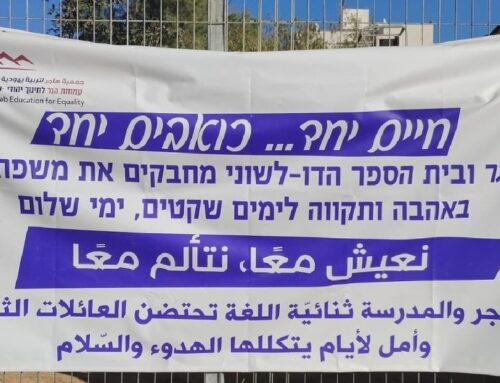 |
| I’m Nathan Hersh, PPI’s assistant director |
Kathleen Peratis makes some persuasive arguments in her case for liberal/progressive Zionist support for BDS (boycott, divestment, sanctions — against Israel). Most convincing among them is that BDS is a nonviolent tool. Terrorism is deplorable, and it pushes Israelis toward hatred, not toward a willingness to negotiate. BDS, ideally, is meant to create discomfort in the status quo that, as Peratis rightly argues, is part of the reason the occupation continues.
Peratis is also right that occupation is not high on the agenda of Israeli voters. The status quo, she writes, is comfortable for Israelis, keeping them from demanding that their government look for ways to withdraw. Moreover, Naftali Bennett’s popularity in the last election is a harbinger of even more unabashed and shameless settlement expansion supported by Israeli voters.
Partners for Progressive Israel has trudged the fine line between opposition to the occupation and love of Israel and Hebrew culture. Last March (2012), we launched a campaign that asks if American Jews are supporting Israel or the occupation. It becomes more difficult to answer this question the deeper one delves into the dregs of the Israeli occupation.
An economic boycott of Israel might be necessary to effect an Israeli withdraw, or at least greater transparency so we can see how entangled the settlements are with the government. As Gideon Levy wrote in July, boycotting only settlement goods is not enough. The only way for discontented American Jews to squeeze Israel on this matter is to refuse to put their money into a system that will send it to the settlements anyway. But this would be an economic boycott, not a cultural or an academic boycott.
BDS goes much further. It demands that the world reject Israel’s national narrative. And it does not recognize, as Ralph Seliger wrote, a Palestinian role in the conflict. For the BDS movement, Zionism is as much to blame as the occupation is for the longevity of the conflict. That is not the position of a Zionist; one cannot claim to support the justice of Jewish sovereignty, or to love the beauty of Hebraic culture’s rebirth, and still deny Israelis a voice the way BDS does. You cannot reasonably appreciate that Israeli scientists produce cures for diseases, for worldwide consumption, and still support a boycott of their research.
If Peratis identifies with the cultural and academic boycott of the BDS movement, then we cannot call her a Zionist. There are, in fact, more than a few “ex-Zionists” who see the shape Israel is taking and the policies molding it as an assault against early Zionist ideals. But this call to boycott does not enforce those ideals. While the refusal to take part in the occupation is necessary for progressive Jews around the world, doing so with a cultural and academic boycott is not standing up for what is right, nor is it helping Israel hear our discontent; Peratis wants to boycott because she has given up on her own role in revitalizing liberal or progressive Zionism.






There is no ‘the BDS movement.’BDS is a tactic which in the modern era was pioneered by Uri Avnery’s group Gush Shalom. And Avnery is a Zionist.
That said, boy am I critical of that BDS movement that tries so hard to portray itself as merely a tactics and not a movement. It’s hard. But it shouldn’t surprise anyone if some PZ’s join Avnery.
A last point is: for PZ’s, you must be feeling like old CP folks in the late 80s. Israel just didn’t turn out like the theorists said it would, or should. It just doesn’t look like there’s a well done coherent defense of your overall opinion fit for right now, these waning days of the 3rd Hebrew Republic.
This links to the international BDS movement website:
http://www.bdsmovement.net/call.
Compared with its neighbors, Israel is in pretty good shape right now, but its future looks doubtful without a viable peace agreement with the Palestinians. Still, this is not a reason to give up on pitching for peace — in fact, it signifies the opposite.
I disagree with Mr. Hersh on a number of counts.
1. There is no one BDS position, there are many groups supporting some form of BDS but they vary significantly. Many do support the existence of Israel in the pre-1967 borders.
2 Equally important many recognize the horrors of terrorism and condemn violence on all sides. It is true that BDS groups recognize the terrible power imbalance that leaves the Israelis vastly stronger than the Palestinians therefore they must take more blame for their actions.
3. I was proud to be a Zionist for many years but I believe that the Zionist Movement has done it’s work and should fold. Now that we have a state there is no reason for a national self-determination movement.
4. Personally I support economic boycott and cultural and academic boycott of settlements. Cultural and academic interfaces are acceptable to me as long as they do not reinforce the occupation.